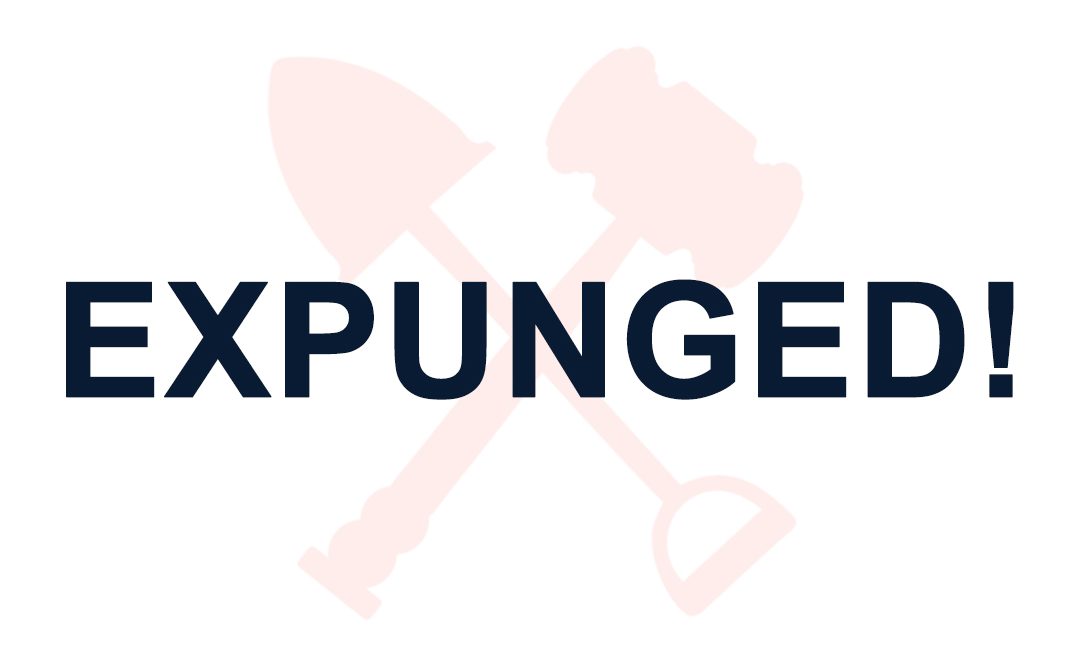A misdemeanor embezzlement may not have to stay on your record forever. Our expungement lawyers will help you determine if an old misdemeanor arrest can come off of your record or not. Get your expungement started today.
Embezzlement is defined as:
A. Embezzlement is the fraudulent appropriation of property of any person or legal entity, legally obtained, to any use or purpose not intended or authorized by its owner, or the secretion of the property with the fraudulent intent to appropriate it to such use or purpose, under any of the following circumstances:
1. Where the property was obtained by being entrusted to that person for a specific purpose, use, or disposition and shall include, but not be limited to, any funds “held in trust” for any purpose;
2. Where the property was obtained by virtue of a power of attorney being granted for the sale or transfer of the property;
3. Where the property is possessed or controlled for the use of another person;
4. Where the property is to be used for a public or benevolent purpose;
5. Where any person diverts any money appropriated by law from the purpose and object of the appropriation;
6. Where any person fails or refuses to pay over to the state, or appropriate authority, any tax or other monies collected in accordance with state law, and who appropriates the tax or monies to the use of that person, or to the use of any other person not entitled to the tax or monies;
7. Where the property is possessed for the purpose of transportation, without regard to whether packages containing the property have been broken;
8. Where any person removes crops from any leased or rented premises with the intent to deprive the owner or landlord interested in the land of any of the rent due from that land, or who fraudulently appropriates the rent to that person or any other person; or
9. Where the property is possessed or controlled by virtue of a lease or rental agreement, and the property is willfully or intentionally not returned within ten (10) days after the expiration of the agreement.
Embezzlement does not require a distinct act of taking, but only a fraudulent appropriation, conversion or use of property.
B. Except as provided in subsection C of this section, embezzlement shall be punished as follows:
1. If the value of the property embezzled is less than One Thousand Dollars ($1,000.00), any person convicted shall be punished by a fine not exceeding One Thousand Dollars ($1,000.00), or by imprisonment in the county jail for a term not more than one (1) year, or by both such fine and imprisonment;
2. If the value of the property embezzled is One Thousand Dollars ($1,000.00) or more but less than Twenty-five Thousand Dollars ($25,000.00), any person convicted shall be guilty of a felony and shall be punished by imprisonment in the custody of the Department of Corrections for a term of not more than five (5) years, and a fine of not exceeding Five Thousand Dollars ($5,000.00), and ordered to pay restitution to the victim as provided in Section 99lf of Title 22 of the Oklahoma Statutes; or
3. If the value of the property embezzled is Twenty-five Thousand Dollars ($25,000.00) or more, any person convicted shall be guilty of a felony and shall be punished by imprisonment in the custody of the Department of Corrections for a term of not more than ten (10) years, and a fine not exceeding Ten Thousand Dollars ($10,000.00), and ordered to pay restitution to the victim as provided in Section 991 f of Title 22 of the Oklahoma Statutes.
For purposes of this subsection, a series of offenses may be aggregated into one offense when they are the result of the formulation of a plan or scheme or the setting up of a mechanism which, when put into operation, results in the taking or diversion of money or property on a recurring basis. When all acts result from a continuing course of conduct, they may be aggregated into one crime. Acts forming an integral part of the first taking which facilitate subsequent takings, or acts taken in preparation of several takings which facilitate subsequent takings, are relevant to determine the party’s intent to commit a continuing crime.
C. Any county or state officer, deputy or employee of such officer, who shall divert any money appropriated by law from the purpose and object of the appropriation, shall, upon conviction, be guilty of a felony punishable by imprisonment in the custody of the Department of Corrections for a term not less than one (1) year nor more than ten (10) years, and a fine equal to triple the amount of money so embezzled and ordered to pay restitution to the victim as provided in Section 991f of Title 22 of the Oklahoma Statutes. The fine shall operate as a judgment lien at law on all estate of the party so convicted and sentenced, and shall be enforced by execution or other process for the use of the person whose money or other funds or property were embezzled. In all cases the fine, so operating as a judgment lien, shall be released or entered as satisfied only by the person in interest.
D. Any executor, administrator, trustee, beneficiary or other person benefiting from, acting in a fiduciary capacity for, or otherwise administering a probate, intestate, or trust estate, whether the trust is inter vivos or testamentary, upon conviction of embezzlement from the estate shall not receive any portion, share, gift or otherwise benefit from the estate.
Financial crimes are especially insidious and can prevent you from obtaining employment.




